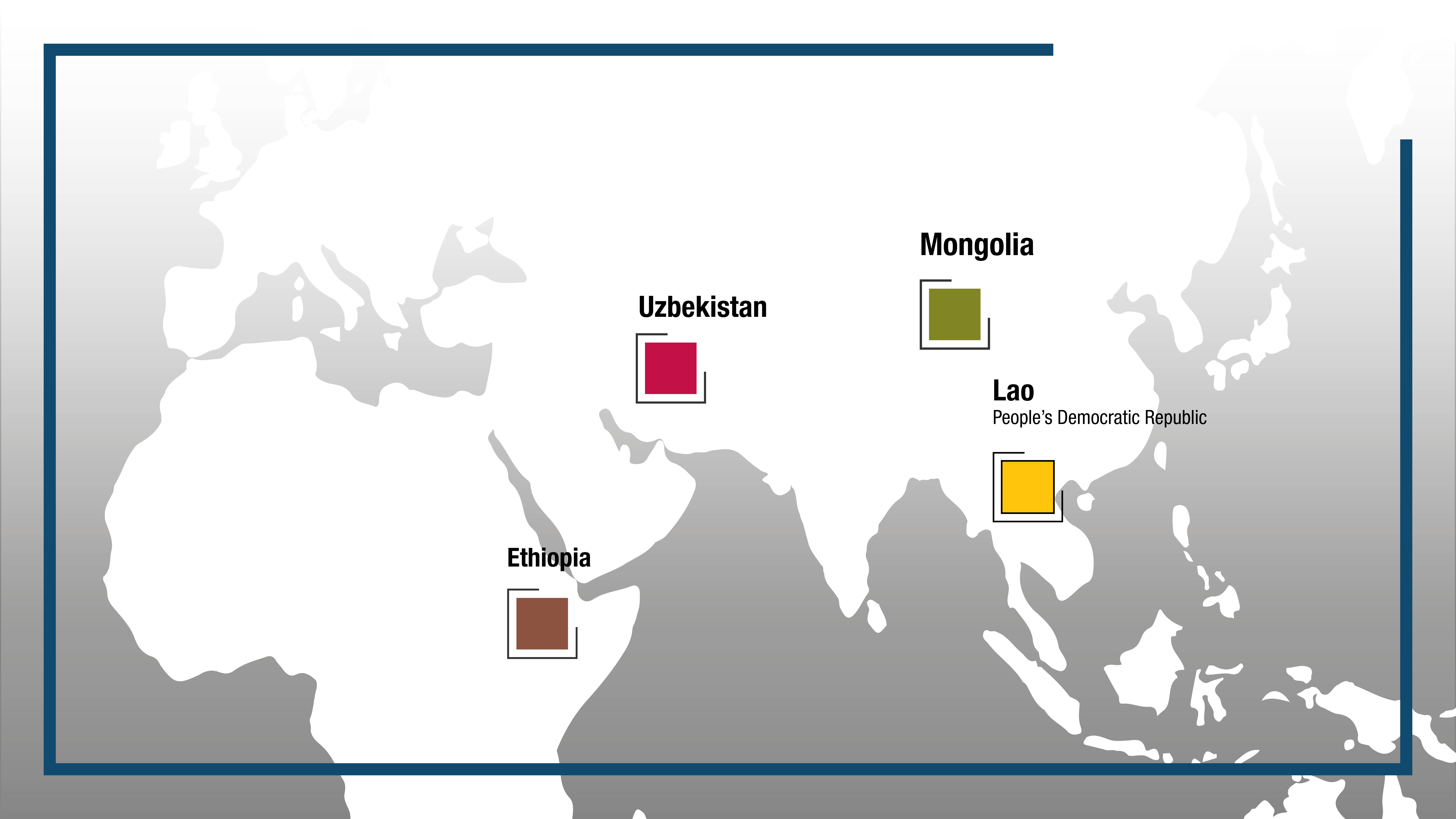The four beneficiary countries of this project (Ethiopia, Lao PDR, Mongolia and Uzbekistan) are commodity-dependent land-locked developing countries, two of which (Ethiopia and Lao PDR) are Least Developed Countries. Previous research has repeatedly shown that commodity-dependent countries face significant development hurdles and that diversification of their economies is an important condition for fostering sustainable development. Additionally, landlocked developing countries suffer from high transport costs when exporting goods to foreign markets, making accessing new markets in existing and new export products also key.
For these reasons, developing the food and agricultural sector can be particularly attractive, with the additional advantage of providing decent income opportunities for rural populations. In addition, in many developing countries, women are predominantly engaged in the food and agricultural sector. Fostering agricultural value chains has then the capacity to boos with opportunities for earning incomes for women and improving their lives.
The overall objective of this project is to support integrated value chain development in four landlocked commodity dependent developing economies (Ethiopia, Lao PDR, Mongolia, and Uzbekistan) through enhancing their capacities in development policies and strategies to promote better integration into Regional and Global Value Chains (RVCs and GVCs), and create development linkages. Specifically, this project has oriented its activities to attain two targets. First, to improve the statistical and analytical capacity of beneficiary countries in effective policy formulation to promote RVCs and GVCs integration and enhance development linkages. Second, to improve the capacity of the private sector in beneficiary countries to assess market prospects, identify market opportunities and overcome market barriers to better integrate into RVCs and GVCs.
In consultation with the national authorities of beneficiary countries, four different value chains for export were targeted in the project: roasted coffee in Ethiopia, maize in Lao PDR, meat in Mongolia and dried fruit in Uzbekistan.
For each of these value chains, national surveys of the existing situation of key components of these value chains were implemented and analysed, and these empirically-based sectorial diagnostics were presented and discussed with national private and public sector stakeholders in each country between late 2020 and early 2021, as well as with other development partners and other key stakeholders.
Objectives of the Workshop
The objective this workshop is to share lessons learnt from this Project and identify follow-up activities in promoting integration into regional and global value chains.
During the workshop, new empirical and analytical findings of the project in relation to agricultural value chains and trade costs will be presented, the empirical and analytical findings of the project at country level will be shared and discussed, and we will discuss possible ways in which the current and future policy frameworks in beneficiary countries and other commodity-dependent developing countries can be strengthened in order to foster better integration of agricultural value chains of these countries in regional and global value chains.
Hybrid Workshop (WebEx)
If you want to attend the workshop via the online platform, please send a message to [email protected], to receive the WebEx link.

